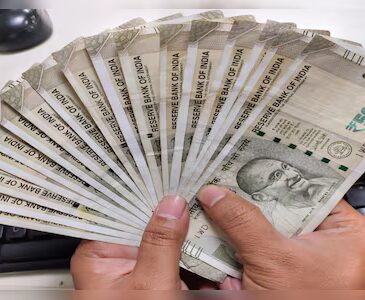Trump’s 26% reciprocal tariff on imports from India: Here’s how auto, pharma and IT spaces may fare
US President Donald Trump as part of his sweeping reciprocal tariff measures has levied a 26 per cent tariff on imports from India. The announcement comes as he calls India’s tariffs as ‘very, very tough’. Further, he calls his move as a ‘kind reciprocal’ as the tariffs levied are half of what India levies on US products.
Trump laid out the U.S. “reciprocal tariff” rates that more than 180 countries and territories, including European Union members, will face under his sweeping new trade policy. Referring April 2 as “Liberation Day”, a minimum 10 per cent tariff on all exporters to the US and slap additional duties on around 60 nations with the largest trade imbalances with the US. That includes substantially higher rates on some of the country’s biggest trading partners, such as China — which now faces a tariff of at least 54% on many goods — the E*uropean Union and Vietnam*. However, Canada and Mexico have been spared from additional tariffs. India, facing 26 per cent tariffs, has been subject to what Trump describes as ‘discounted’ reciprocal taxes.
Even though some analysts hail the measure and see it to bring key manufacturing capacities back to the US, some believe that the duties may result in fresh trade barriers.
These tariffs, aimed at counteracting high import duties imposed by these countries on US goods, will have both short-term and long-term implications for India’s economy, trade relations, and currency markets.
Devarsh Vakil, Head of Prime Research, HDFC Securities noted thta the fine print of President Trump’s executive order indicates that reciprocal tariffs won’t apply to autos, semiconductors, steel, aluminium, copper and other products already targeted or potentially still to be targeted by sectoral tariffs.
As we write, GIFT Nifty futures- an early indicator of market movement traded weak by 1.17 per cent or 273.95 points at 23,165.
Here’s how analysts view the move to pan out for Indian markets and its different sectors
- For India, heightened trade tensions may weaken the INR and deter FDI, though domestic stimulus could offset risks.
- Pranay Aggarwal – Director & CEO, Stoxkart said, “Defensive stocks (FMCG, utilities) may outperform, while cyclical sectors (autos, metals) could underperform. Long-term implications hinge on negotiation outcomes, but near-term caution is advised.”
- Auto stocks: The US announced a 25 per cent tariff on imported automobiles and auto parts, effective April 2 for cars and light trucks, and May 3 for auto parts
Shares of the top US automakers fell sharply in after-hours trading on the announcement, with General Motors down more than 7 per cent, Ford off 4.6 per cent and Stellantis lower by per cent. - Shares of Asian automakers also fell during trading on Thursday. Japanese automakers Nissan, Toyota and Honda are closing down 2.2%, 2.7% and 3%, respectively. In South Korea, Hyundai Motor and Kia both fell about 4%.
- Pharma sector: Pharma sector has been exempted from the reciprocal tariffs, giving relief to companies including, Sun Pharma, Dr Reddy’s and Aurobindo Pharma, which account for a major revenue stream from US.
- IT sector: The US has indicated potential tariffs on IT services, a sector where India has substantial exports. The US reciprocal tariffs are set to have a multifaceted impact on India’s economy, with significant effects on key export sectors and associated industries. The magnitude of these impacts will depend on the duration of the tariffs and the ability of Indian industries to adapt to the evolving trade landscape.



